
This 4th of July marks the 243rd birthday of the United States of America. With each new generation, the country has evolved to reflect the culture and values of the times. Today, what is considered the "American experience" is more diverse and inclusive than it's ever been — but as party lines and heated rhetoric continue to divide Americans by race, class, and gender, so many unique narratives are omitted from the conversation on what it means to be a US citizen.
This is why photographer Nate Gowdy, with the help of an enormous team of creators and innovators, set out to help define the modern American experience through a collection of portraits and personal stories. Gowdy's series The American Superhero takes for its inspiration Marvel's Captain America, a comic superhero who has come to define what patriotism looks like, and asks Americans from all walks of life to don the character's iconic colors and shield to become the face of a true American superhero.
"The focus of this project is on the uniqueness of the characters wrapped in the fabric of their quintessential American journey," Gowdy told BuzzFeed News. "They are all different from each other, yet the plots and twists of their stories intersect in ways that define the American saga.
"The sheer diversity of our nation is so breathtaking in every sense of the word. At the tip of the iceberg we see all the outward differences. Underneath, we find roots full of stories that bind us in ways we cannot see with our eyes."
Vishavjit Singh, 48 — cartoonist, speaker, and performance artist
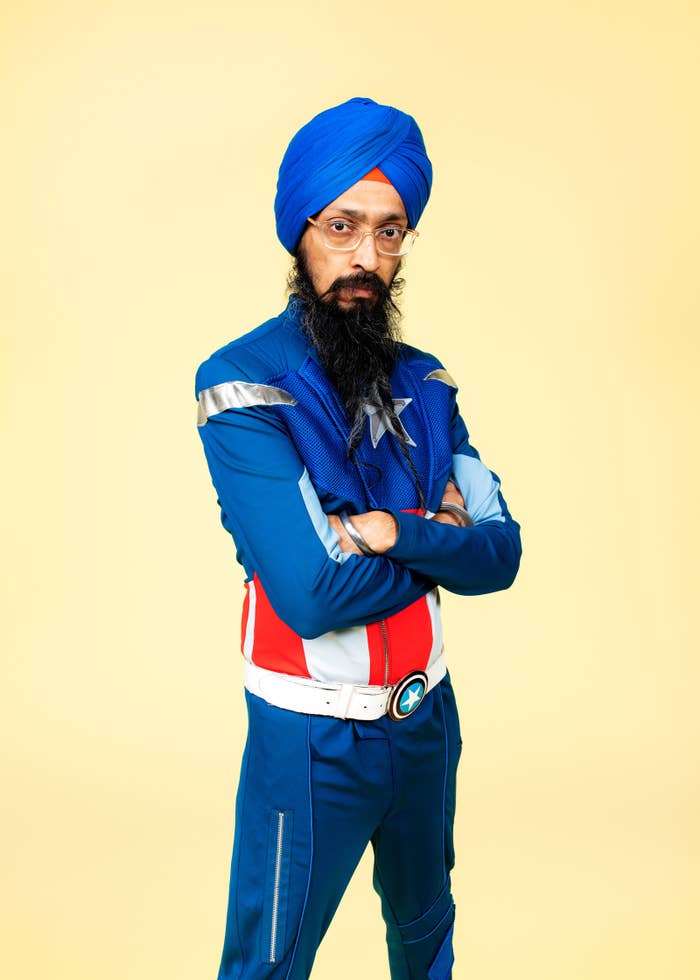
“I have felt for most of my life like the ‘other’ … getting bullied as a young boy, surviving a genocidal massacre of the Sikh ethnic minority on the streets of India, and being told to go back home countless times by fellow Americans from Los Angeles to New York.
“After the tragedy of 9/11, I found myself as an American mourning the loss of life while being the target of ignorance, fear, and bigotry. An editorial cartoon featuring a Sikh character in the aftermath of 9/11 captured my predicament. That was the spark for me to start cartooning and to give voice to my story by portraying characters who look like me — with turban and beard. Today I am a storyteller traveling across the nation sharing my vulnerabilities and strengths to find connection with the stories of others.
“America to me is a collage of incredibly diverse stories with twists and plots spanning the globe. There is darkness, there is light, there is tragedy, there is redemption, there is intransigence, there is innovation, there is hate, and there is love. To me, our greatest strength and vulnerability is this amazing collection of tales. To create a space for each one of our stories to be told and heard is our greatest pursuit.”
Pramila Jayapal, 53 — US representative for Washington's 7th Congressional District
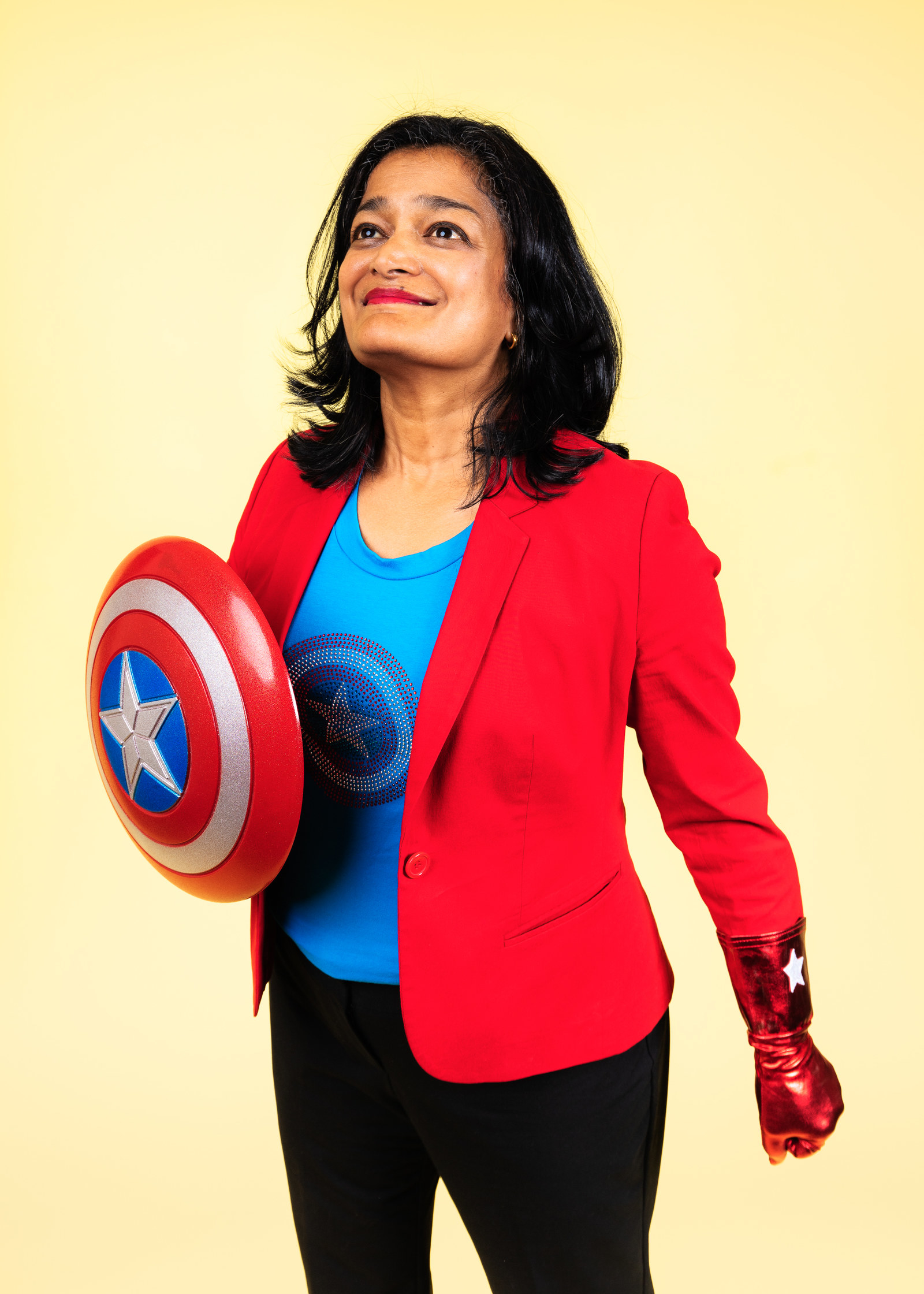
“Defining moments for me have been coming to the United States when I was 16 years old, by myself, as an immigrant, with really nobody around me, and really feeling what that meant — to be in a whole new country with no family. Having my child, who was born 1 pound, 14 ounces at 26.5 weeks and really by all accounts should not be here, but they are a beautiful 22-year-old now — that taught me so much about what courage means. Starting my organization after 9/11 and fighting against bullying, against hate, for immigrants, and for justice in the world, and turning it into the largest immigrant advocacy organization in the state and one of the largest in the country.
"And now, getting to be an immigrant in Congress, one of only 14 of 535 members of Congress who is actually an immigrant — the first Indian American woman. These are moments that I look at and say, ‘Okay, they have given me strength, they have given me courage, and they have given me enormous responsibility.'"
M. and L., both 8 — transgender twin brothers
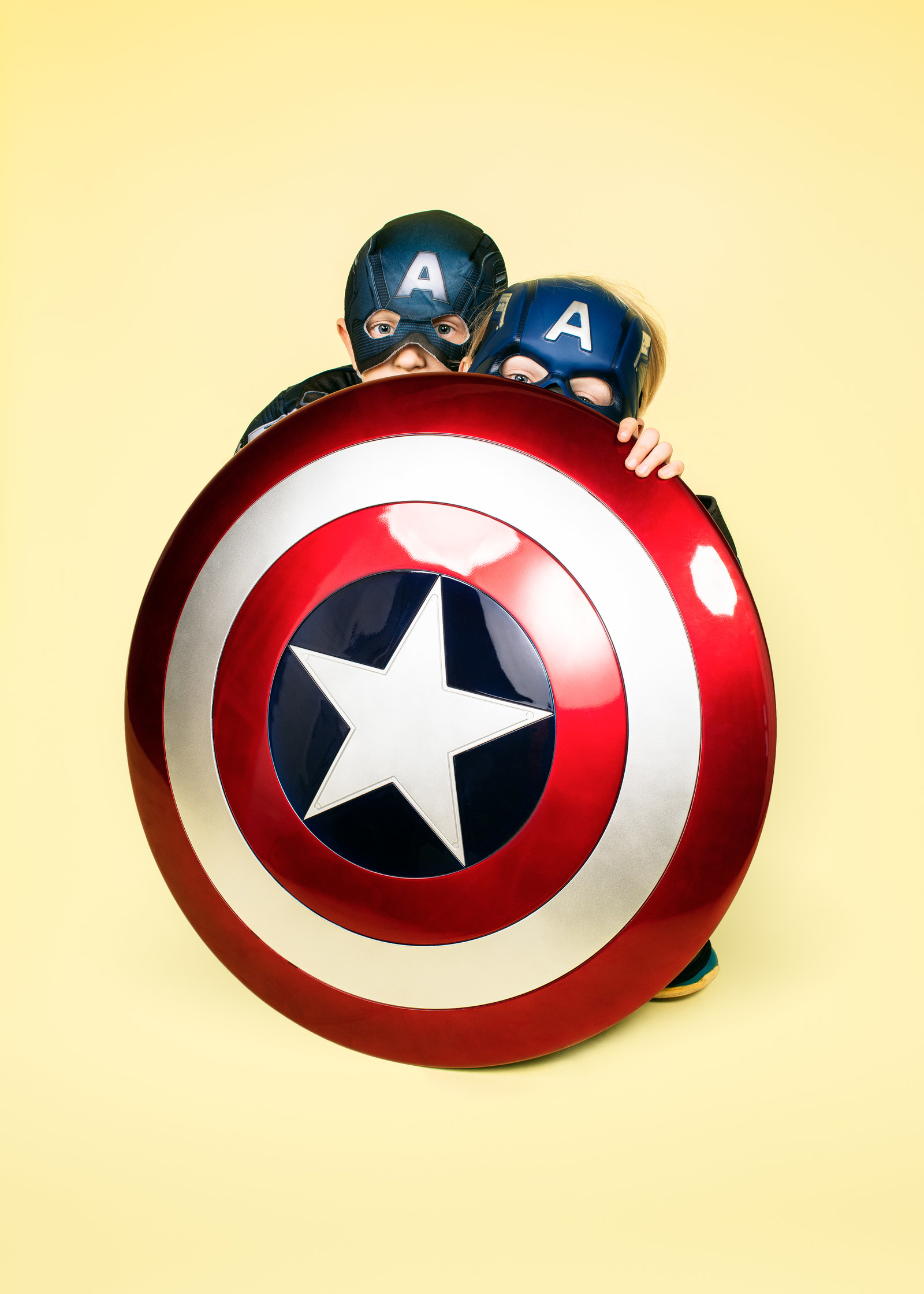
L: “I love having a twin as a brother and I like being transgender because it makes me feel special.”
M: “We feel special. And we don’t know a lot of kids that are transgender.”
L: ”It was kind of hard at the beginning of the year at school because everybody didn’t know anything about being transgender. So at the beginning of the year they kind of bullied me and my brother. And when we told everybody that we want to be called boys and that we preferred the pronoun ‘he,’ people told us that that wasn’t possible and you couldn’t do that. And that didn’t really make us feel very good. And then we told our teacher and she gave us a whole lesson on transgender and gender. Um, and now nobody bullies us. They just say the pronoun ‘he’ to us and stuff.”
Giselle Lopez, 18 — student working two jobs
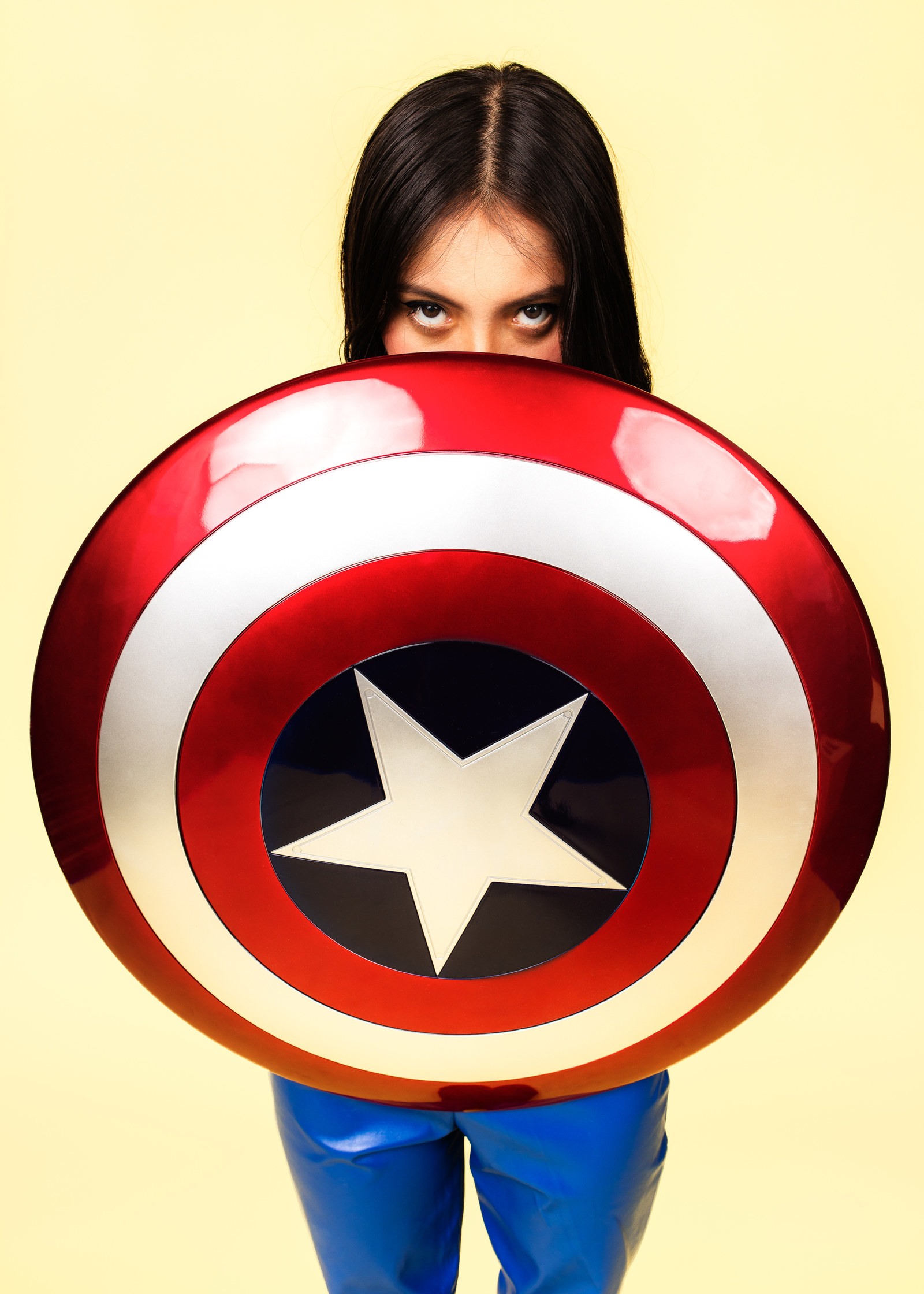
“My family has struggled and moved a lot since the 2008 recession. Mom’s always worked long, hard hours with no recourse for abusive employers because they’d threaten to report her. On top of that, Dad was diagnosed with degenerative disc disease and Mom is his only caretaker.
“I graduated from high school a year early with a perfect GPA, and Mom dropped me off at college on Sept. 21st, 2018. One week later she got deported; I haven’t seen her since. We were completely in shock because my parents have done everything by the book to file the proper paperwork, going to lawyers since before I was born and spending lots of money. Alone, Dad spiraled into alcohol addiction, and I was almost booted from school when I went to go help him move to be with her in Mexico.
“I like to go to Mexican restaurants because it’s the closest I can get to reminding me of my mom and her cooking. It’s the only thing that kind of keeps me sane."
Aris Tewelde-Hunt, almost 1 — all-American baby
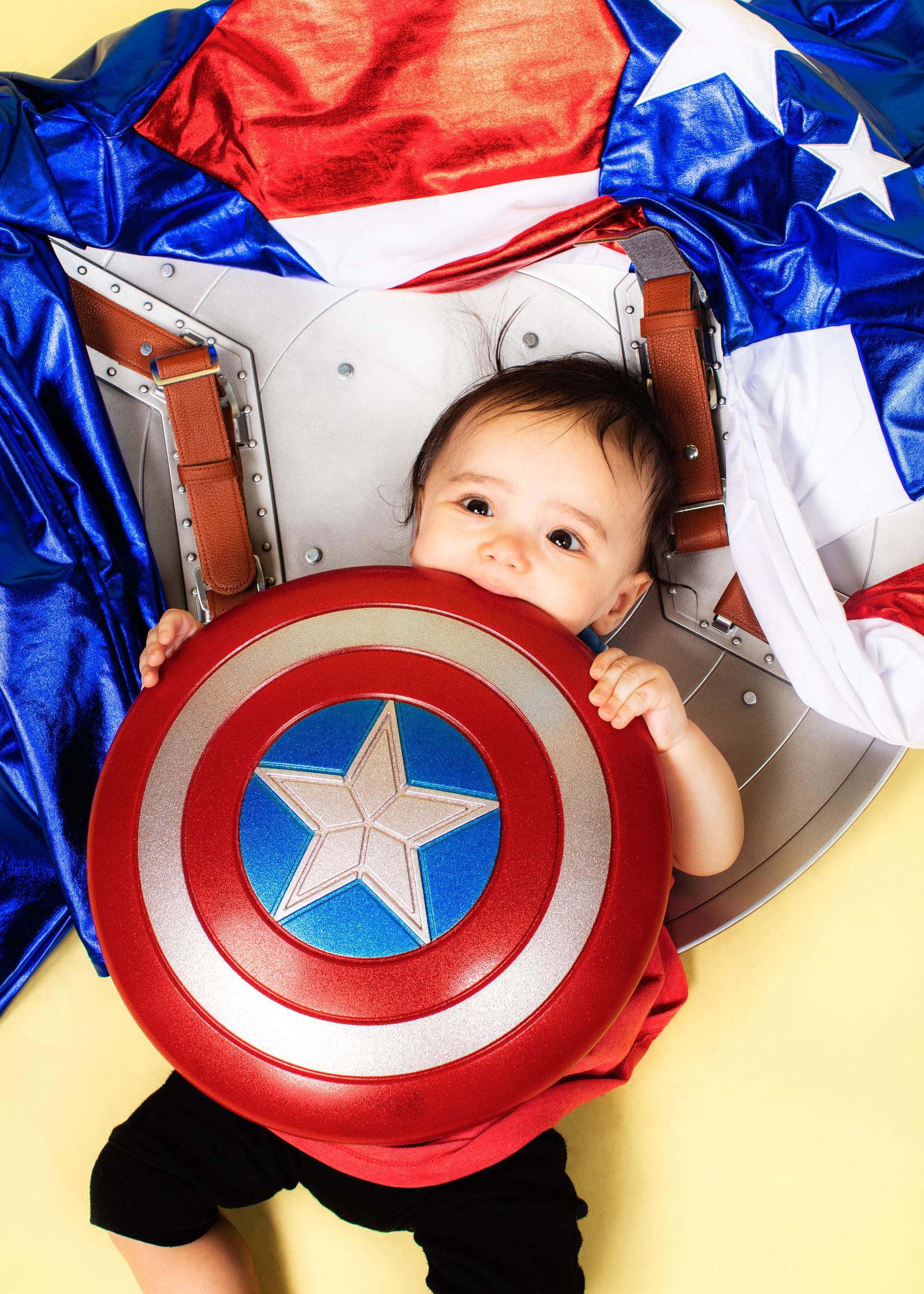
Nahid Tewelde, Aris’s mother, 29: “I’m Eritrean and my family immigrated here with me when I was a baby — first to Dallas and then Seattle. And so, for some reason, seeing the flag and the red, white, and blue growing up was really triggering for me — something that I’ve been trying to break down and understand.
“The only time I felt slightly comfortable saying that I was American was when Obama was president. And I want my son to understand his identity and not to have such a huge conflict. I want him to be able to be proud to say that he’s American, because we have so many different types of Americans and I don’t want him to feel like he has to reject part of his upbringing. I want Aris to be able to look at these photos and in the future say, ‘You know, I’m proud to have been a part of this project.’”
Aleksa Manila, 44 — social worker, social activist, and drag queen
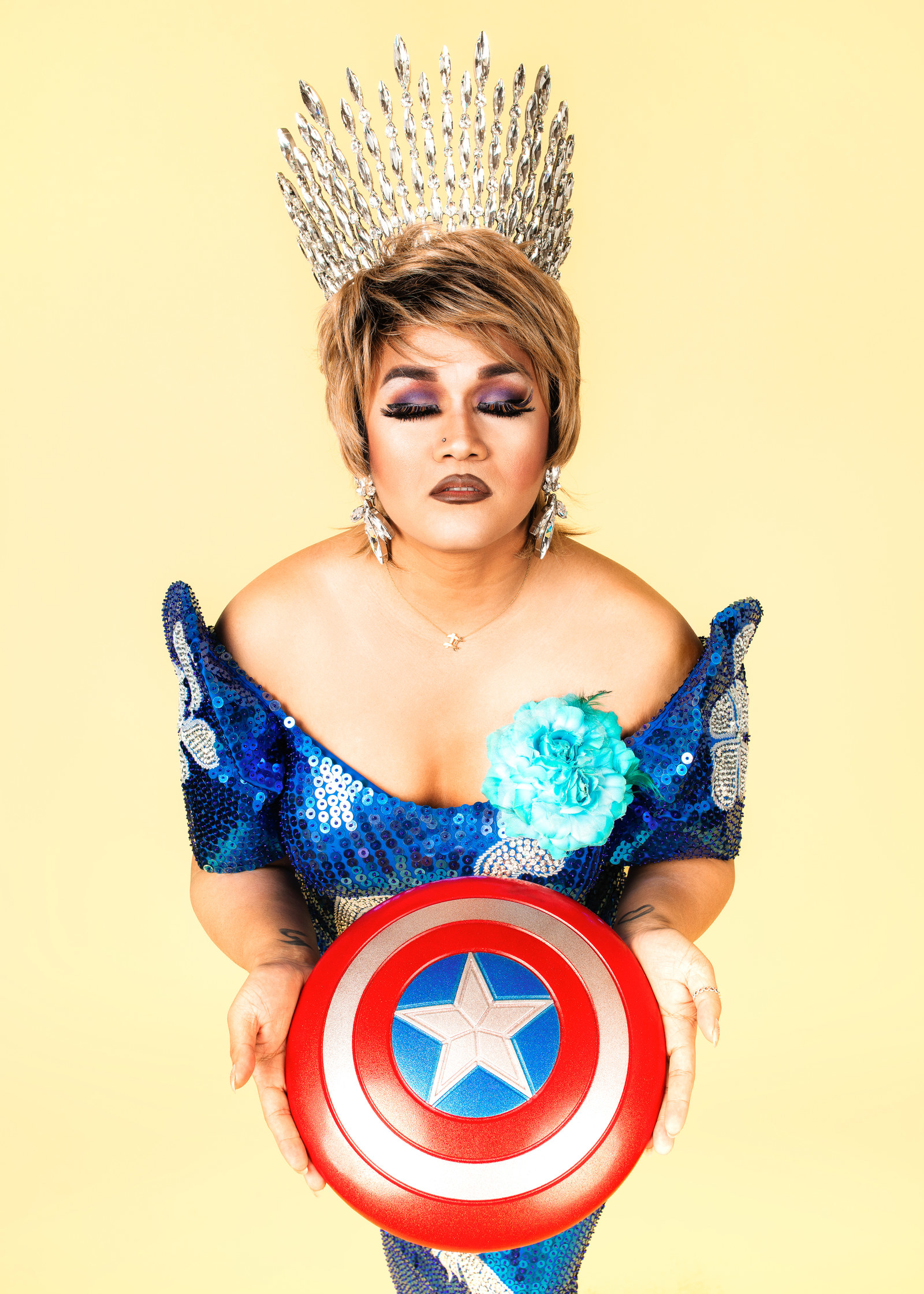
“My journey coming to America began when I joined my family here in Seattle from the Philippines in 1995. Ten years in, I became a United States citizen. At the time, the idea of being gay was being challenged, and there was that talk and risk of being deported because of it. So I wanted to avoid that. I also held the title of Ms. Gay Seattle, so I wanted to become a US citizen so I could do my part in motivating others to vote.
“Drag is my superpower because it allows people to be inspired, to be encouraged, to dig deep, and to see the beauty that exists inside and out. I’m thankful to all my drag queen and drag king ancestors — particularly African American, Latinx, Puerto Rican, and Asian — who fought hard at Stonewall in New York City 50 years ago so that I could express myself in this powerful way.
“To be American is to be able to live freely, have autonomy over our bodies, and to be proud of whoever we are, wherever we come from, whatever belief systems and family values we adhere to, as long as they come with love, respect of ourselves, of our individuality, and of others. And not just our family members, but truly any person we see, whether that means a brown person like me or an immigrant like me. We can all coexist with love, with pride, and knowing that — at the end of the day when we close our eyes — we’re all the same America.”
Gay Lloyd Pinder, 73 — speech language pathologist
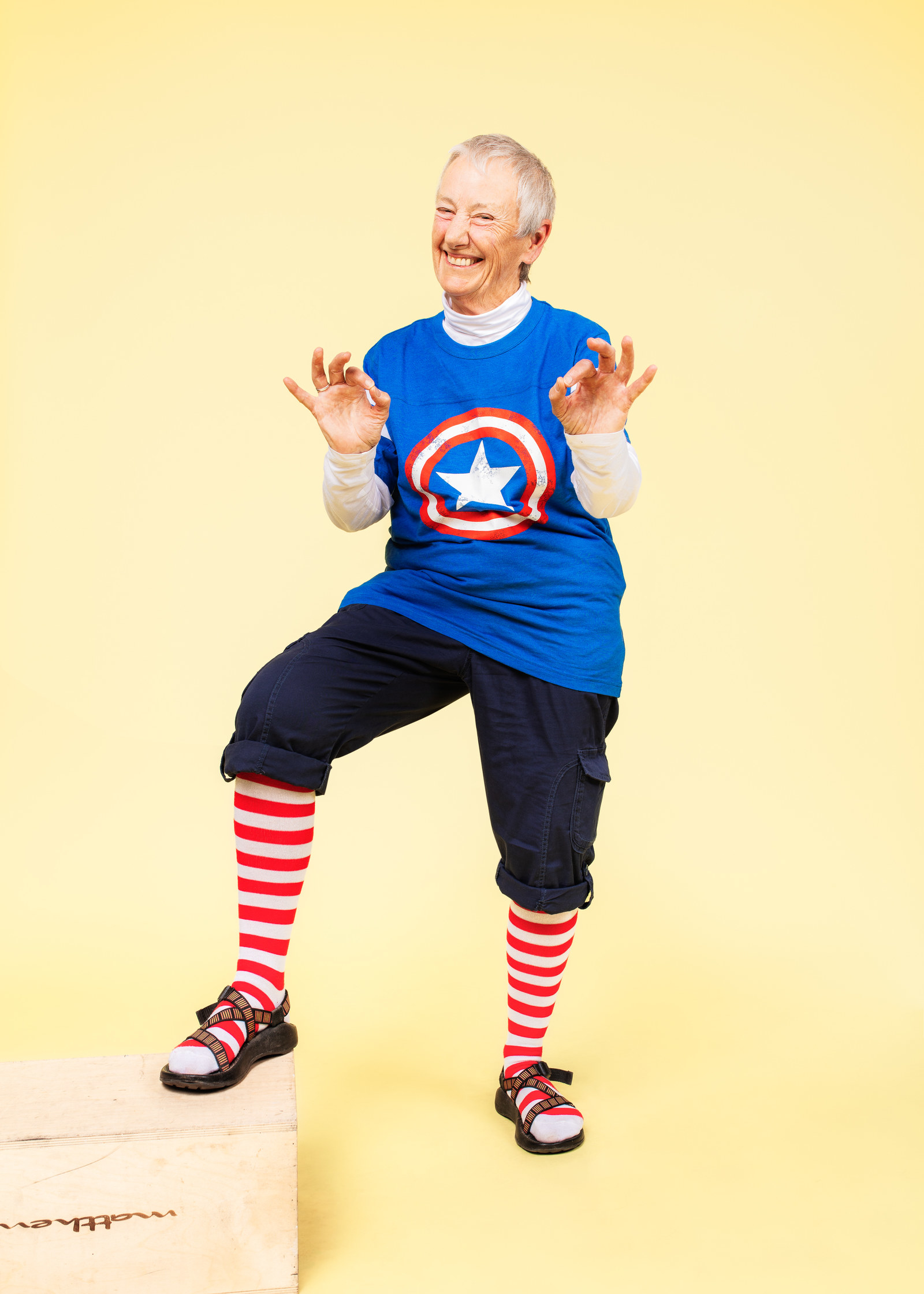
“I grew up in Virginia in the 1950s. Pa was an episcopal minister and he had a church, a white church, and his best friend in town was the black episcopal minister, of the black church. They were working to bring the two congregations together. One night the Mitchells came over for dinner — happened often.
“The next day my best friend Betty came up to me on the playground and she said, ‘I heard something about you. Did you have a black family come to your house last night?’ And I said, ‘Yeah, it was the Mitchells. They’re wonderful.’ And she said, ‘Well, I was hoping that wasn’t true. I can’t ever talk or play with you again.’ Three weeks later, at probably 2 a.m., I saw a cross burning out on the yard.
“Not knowing anything about the whole racial situation except for Betty, I just thought, ‘Odd,’ and didn’t wake anybody. In the morning I told Pa and he said ‘Yup’ and explained. And I just sort of internalized and went with it because my family never looked back. They just kept right on going.”
Tito Dith, 49 — physical therapist, small-business owner, and dad
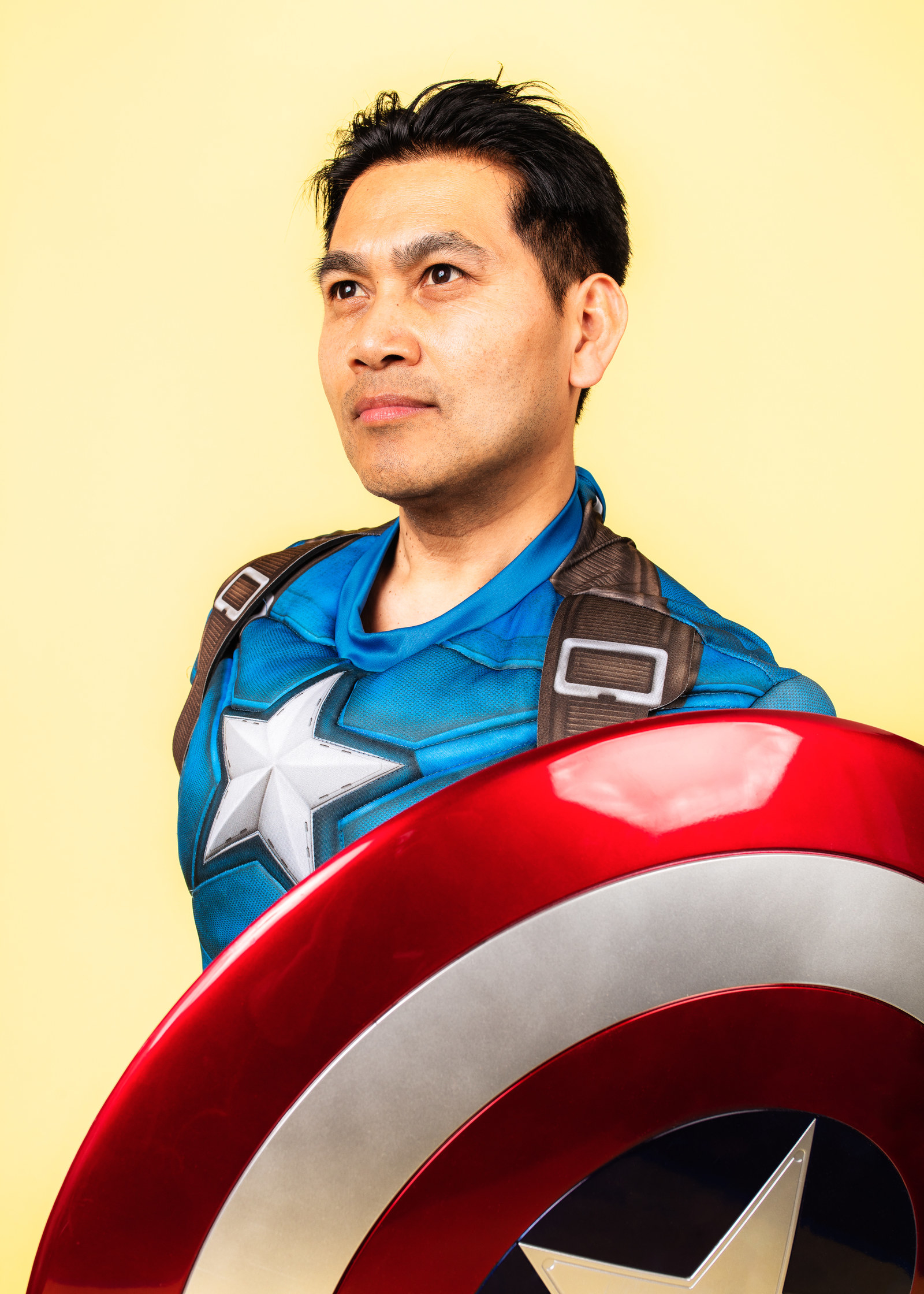
“I left Cambodia at age 5. I remember hearing helicopter noises and the smell of diesel engines and being separated from my dad who was covering the story of the civil war in Cambodia. And I remember coming to America, not knowing the language, here with my mom and my three siblings, and it was a struggle. But my mom kept us all together and she always told us to keep thinking about my dad … that some day he would join us. I remember her telling us that on every birthday — ‘You know, I wish that your dad was here with us.’ And then that moment when we heard the news my dad had made it across the border into Thailand. Receiving that phone call, we were just so elated — jumping, screaming, and then being reunited at the airport. That was an amazing part of my life.
“I believe my dad had superpowers in the will to survive — that drive. What was behind that was the fact that he wanted to tell the world about the genocide in Cambodia, and he needed to survive in order to tell that story.”
Editor’s note: Tito’s father Dith Pran played a significant role in bringing the crimes of Pol Pot’s Khmer Rouge regime to the world’s attention as a photographer for The New York Times, enduring four years as a slave laborer. He was the subject of the 1984 Academy Award-winning movie, ‘The Killing Fields.’
Cassandra Jackson, 37 — customer avenger and traveler
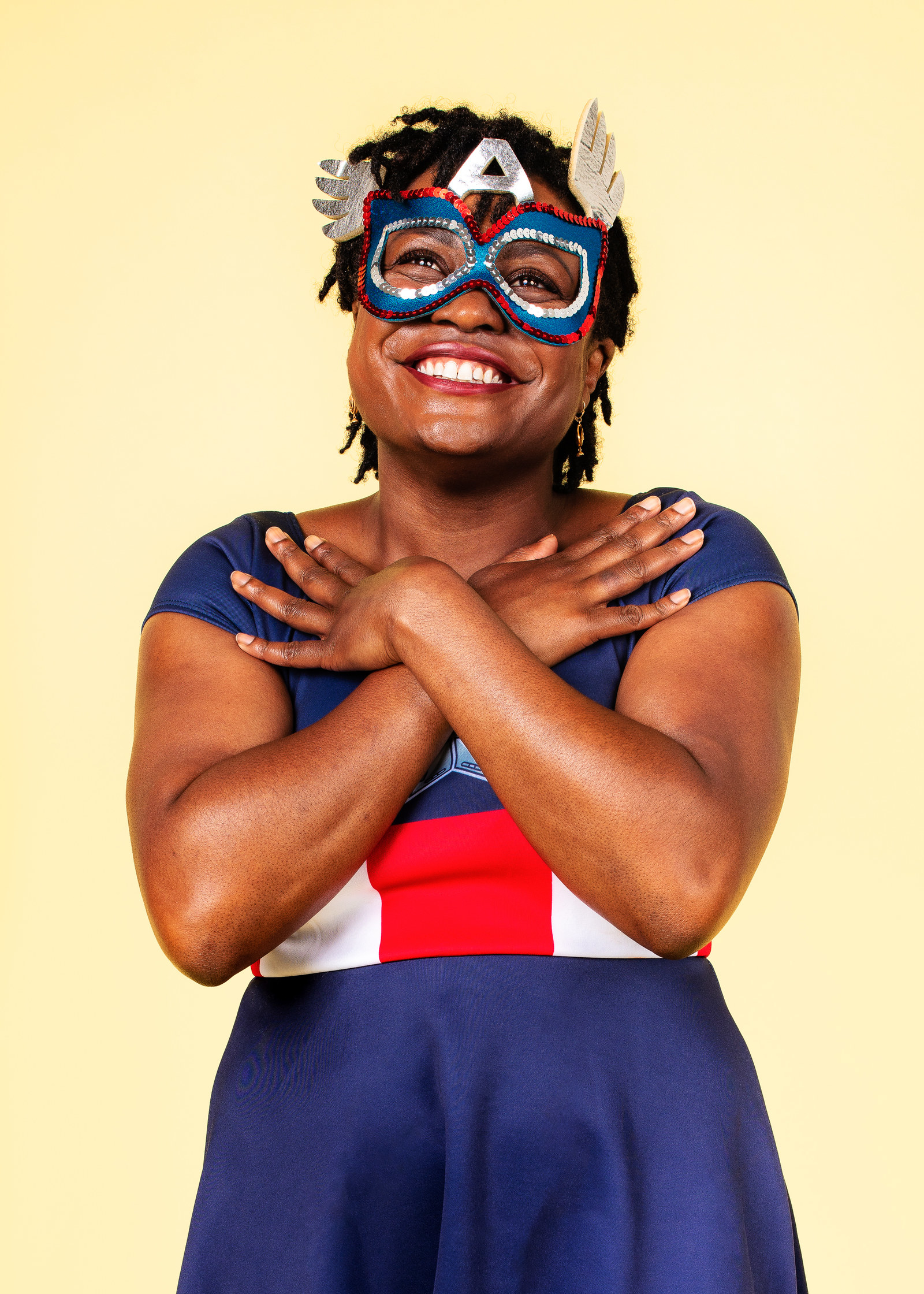
“I was in Korea once visiting my brother who was living there, and there were two lines at customs: one for the Koreans and another for the non-Koreans, and everybody in the Korean line looked Korean. In America, you look at our lines at customs and everybody’s American, but also looks different. And I love that about America, that I have Indian friends, Hispanic friends, white friends, black friends. I’m Christian; I have friends who are not Christian. Being American is having the freedom to define what that is for you."
Jeremy Best, 51 — high school music teacher, musician, and indefatigable somnambulist
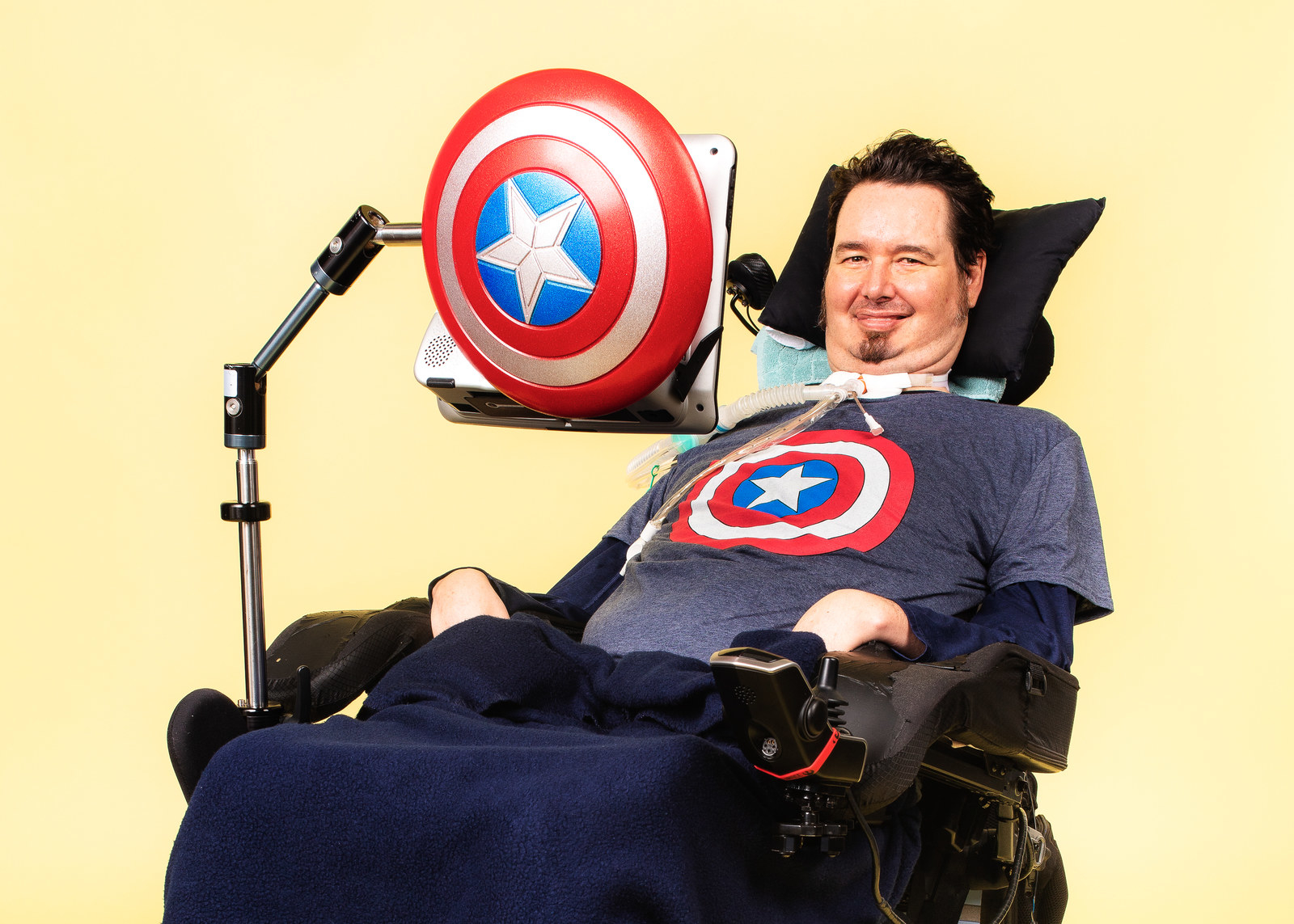
“I believe diversity in this country must be cherished and emphasized, especially during the time of this president.
“My superpower has become pioneering technology so that people like me can make music in the future. Music technology for quadriplegic people, man! I was in a band prediagnosis, but more importantly I have been working with Microsoft on the Eye Gaze music project and recently have been involved with the excellent encephalophone adventure. Both are new and exciting technologies that offer real hope for the future. I am also working with a VR man exploring ways we could use VR as an assistive technology.”
Nima Forghani, 36 — systems engineer, filmmaker, and export of Iran
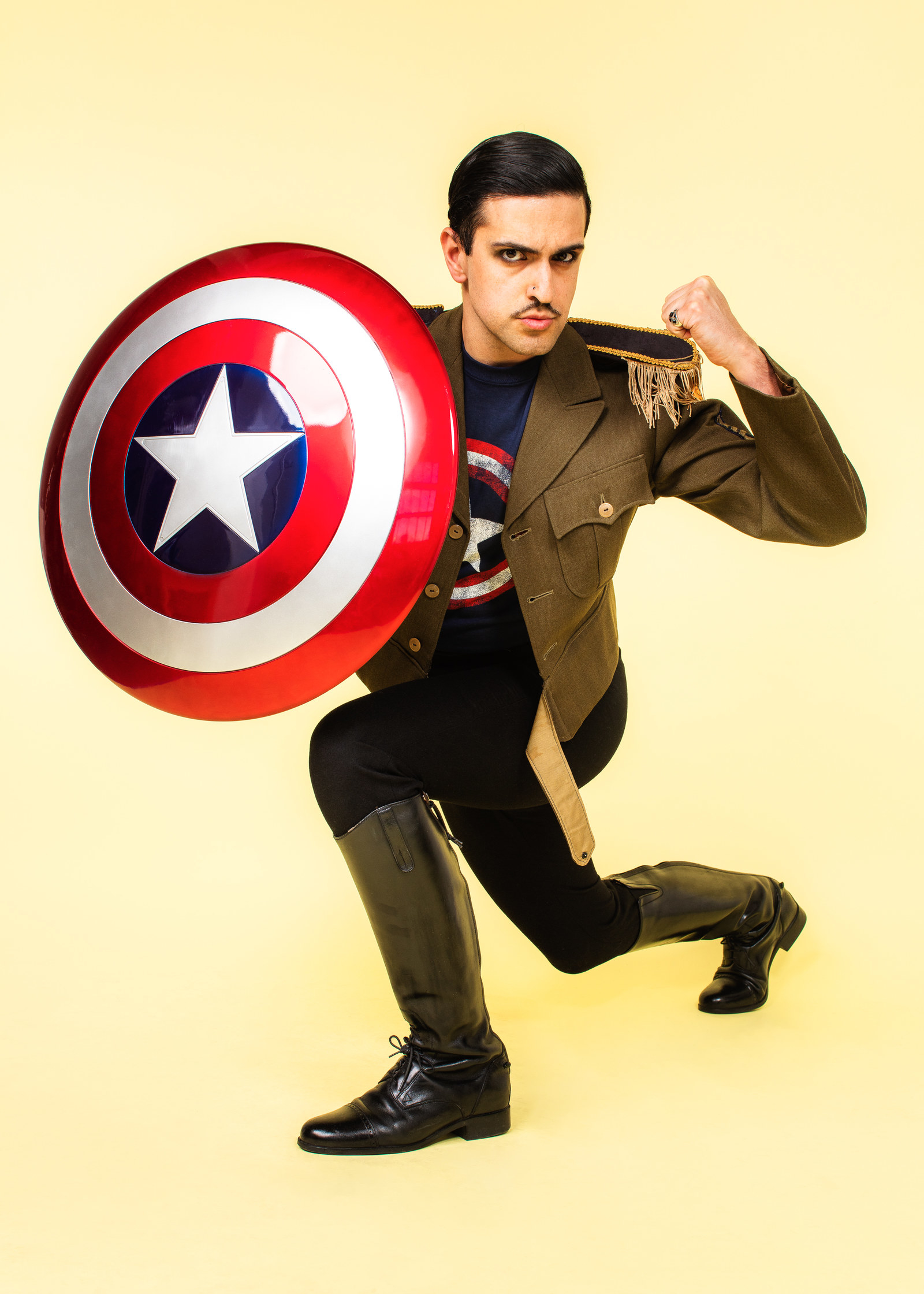
“I remember going to the bomb bunkers in kindergarten. During nightly raids, dogfighting fighter jets bombed everything they saw. Schools and hospitals would get leveled. There was no Geneva Convention. Iran lost about 1 million people in the Iran–Iraq War, and another 6 million were disabled. I once witnessed a public execution when my mother and I were walking through a bazaar shopping. I grew up in constant fear of war and my own government.
“A doctor and intellectual, my dad was harassed by the Islamist regime. Our own country didn’t want us. One thing he always said, and I will never forget these words: ‘No matter what, the last place that will fall will be America. So we want to be there.’ In 1999, we were granted political asylum in Canada. And then, finally, we got a green card application from the US Embassy. A process that took 20 years as Iranian nationals took us six months as Canadians."
Mary Elisabeth Hancock, 99 — World War II nurse and retired rancher
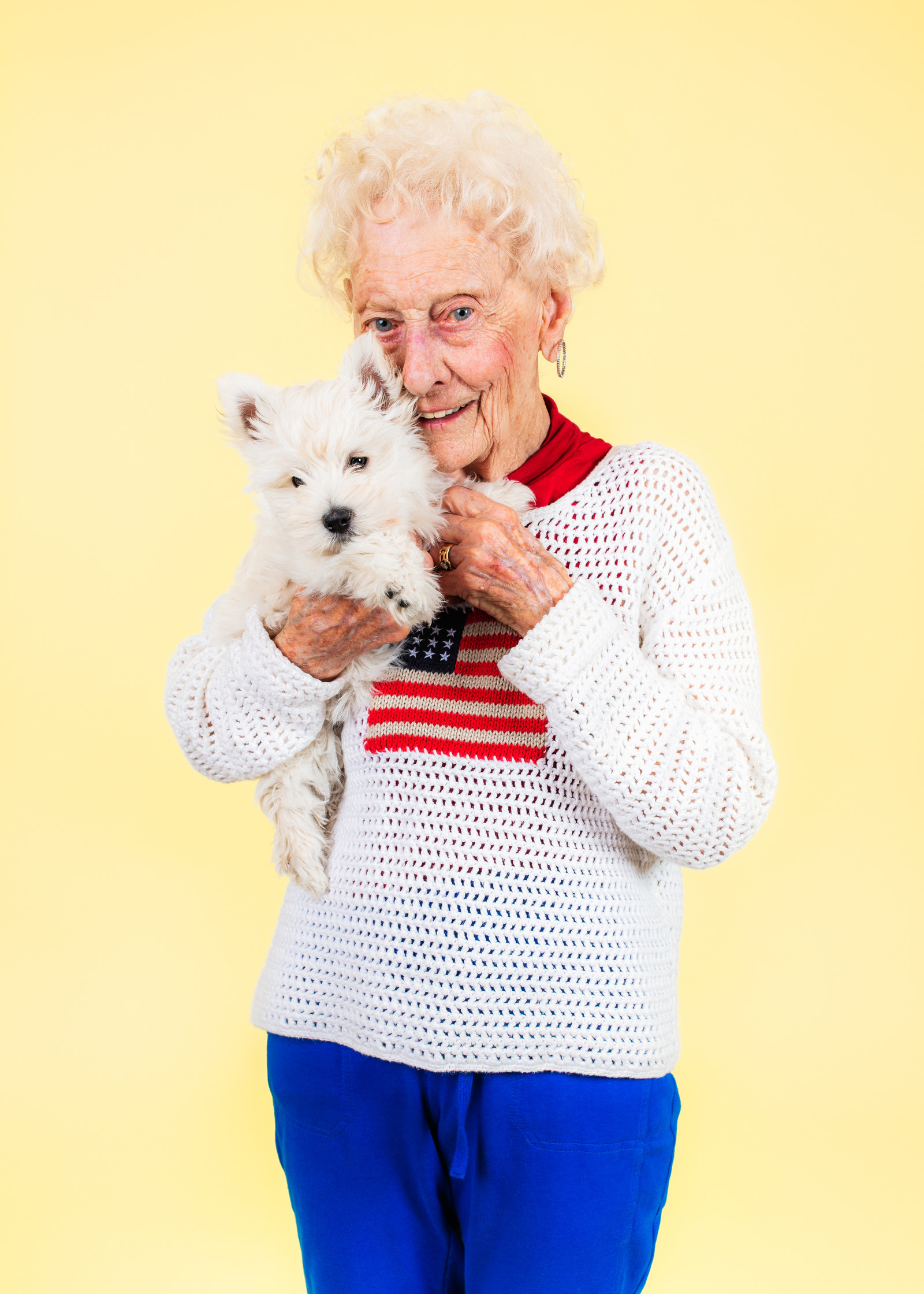
“When I graduated from nursing school in 1942, I enrolled to become a Navy nurse and was stationed at the Brooklyn Naval Hospital for six months. Then I was transferred to Pensacola, Florida. For quite a few months, before the WAVES (Women Accepted for Volunteer Emergency Service) came in, it was just me and two other women who were nurses. We cared for thousands of men — cadets, enlisted men, and officers.
“I was there a year and a half before I fell in love and then got married. He was a Marine fighter pilot who taught the cadets to fly. There were a lot of crashes. And I used to go out with a doc to these crashes, which were bad. I don’t remember any of them surviving. Learning to fly was dangerous and it was a very sad time.”
The Vasilez family: Jennifer, 34; Josh, 36; Maya, 3 — Syayayəʔ (Lushootseed for "family")
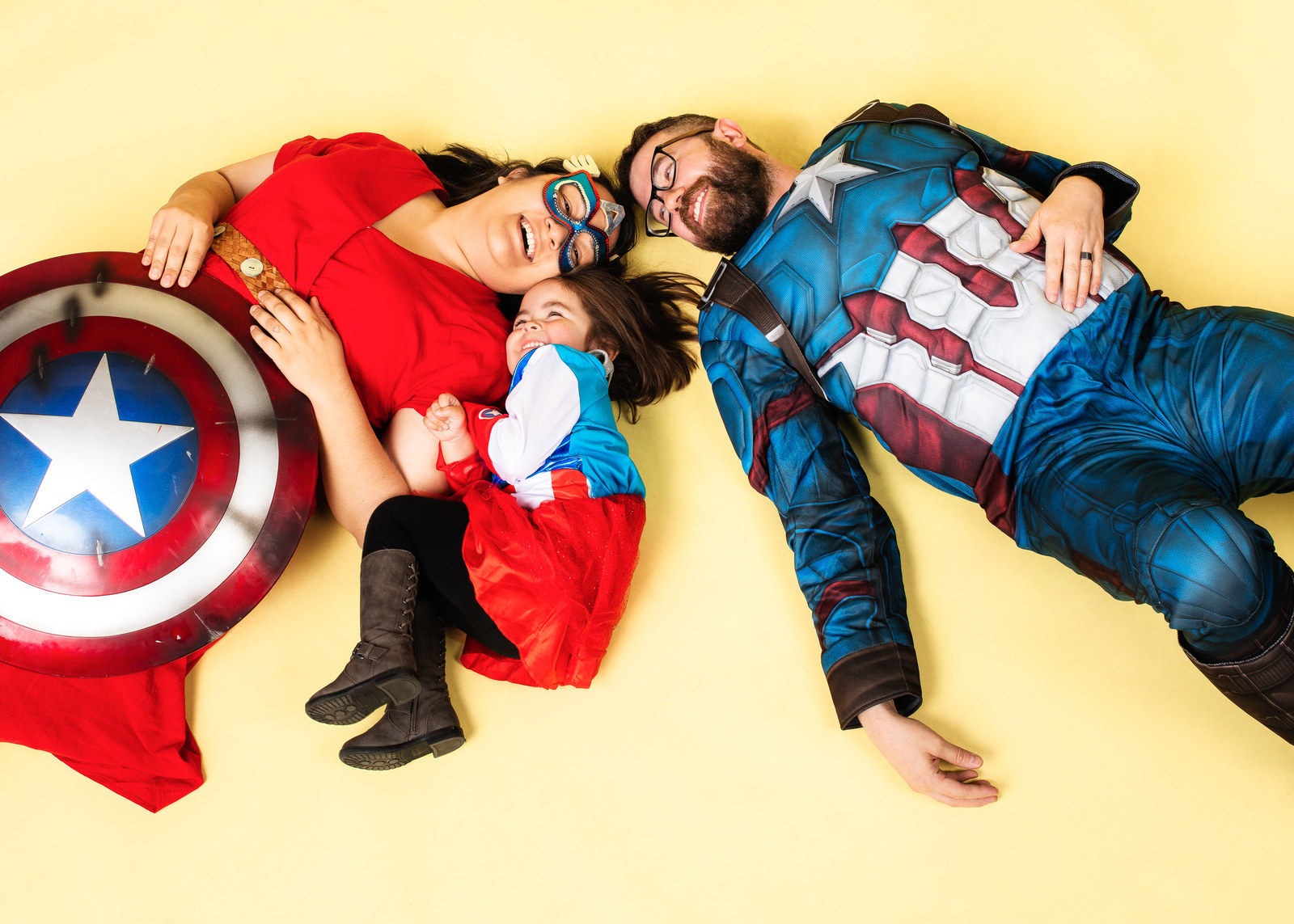
Jennifer: “Even though I can claim identity with multiple ethnic groups and am enrolled in the Puyallup Tribe, I didn’t grow up in a traditional way. When Kennedy — an Irish Catholic — was elected president in 1960, it meant a lot to other ethnic communities. My grandparents bought into the idea that if you just assimilated you could be successful. As a result, I don’t speak Spanish and my native indigenous language fluently. But it’s not just me who’s had to reindigenize myself, it’s much of Indian country. There’s the history of boarding schools and other things where native spiritual practices and languages were made illegal or people were punished for participating in them.
“I’ve been blessed to be a teacher, and now I’m the principal of a tribal school where we’re incorporating native knowledge and practices into all subject areas — because our ancestors were social scientists and everything we have today. Both opportunities have helped me reconnect with my community, and I’m learning as much as possible so I can pass those teachings on to my daughter.”
Maly Oudommahavanh, 37 — special ed teacher’s aide, unfluencer, taste destroyer, and collector of small stories
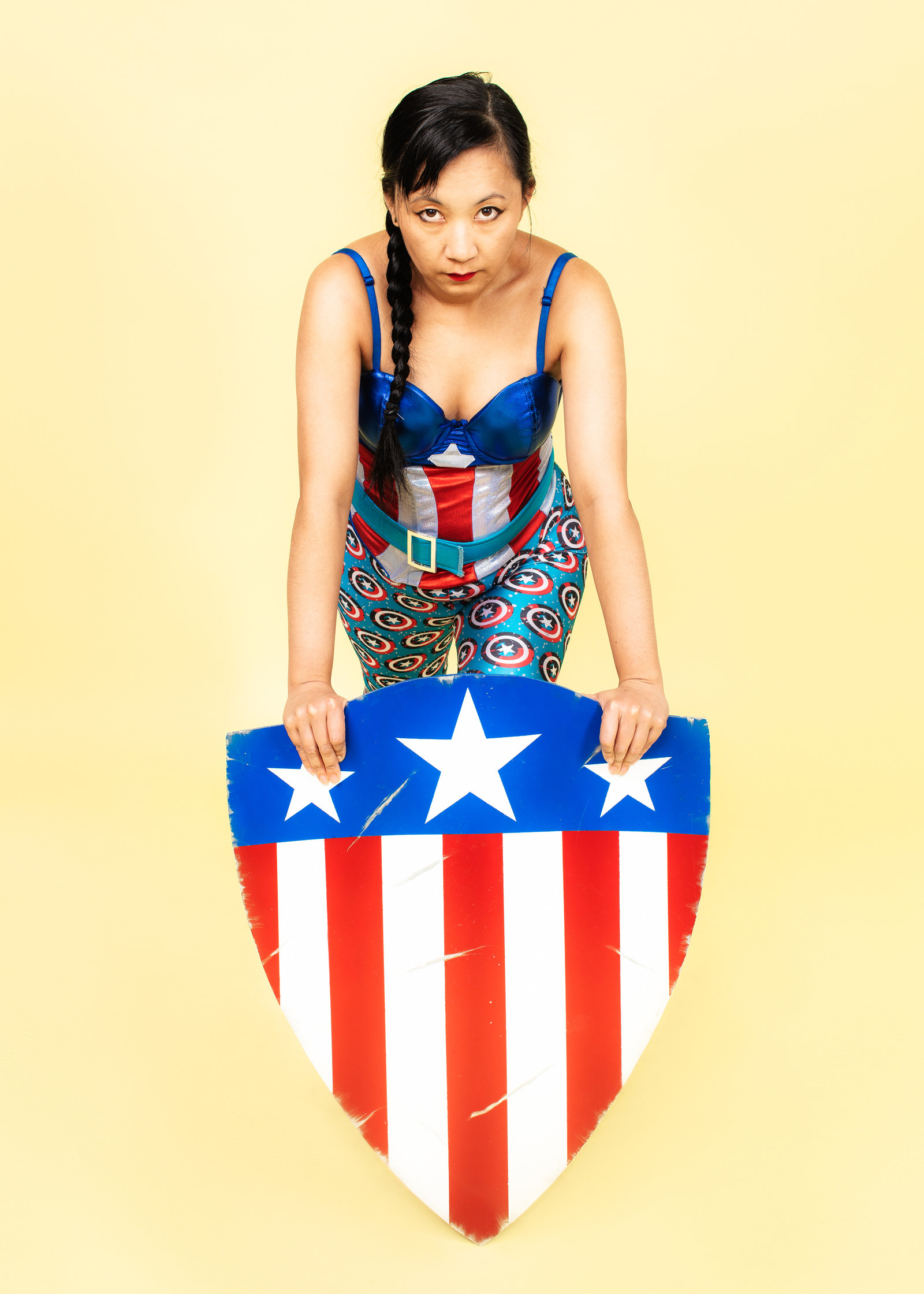
“I am Asian American — but even in the Asian American diaspora, there is such a huge diversity. My family’s from Laos and were refugees. I was born and lived five years in a refugee camp. The Laotian American refugee experience is quite similar to that of Cambodian Americans and Vietnamese Americans. When you look at their stories and the traumatic things that happened to bring them to our country, there’s a lot of similarity with superheroes who, much of the time, are born out of really adverse circumstances … your family members dying or you being put in a foreign environment — and not by your choice —and then making the best out of it.
“What does it mean to be American? Honestly, it means a lot of privilege. Even as my identity is ‘hyphenate American,’ I still realize that that ‘American’ at the end is super powerful. My passport alone means I can travel to a lot of places. I might still get treated differently because of my status as a woman or as a person of Asian descent, but we as Americans still wield a lot of power and we need to do good with it.”
To learn more about Nate Gowdy's The American Superhero series, visit nategowdy.com.

